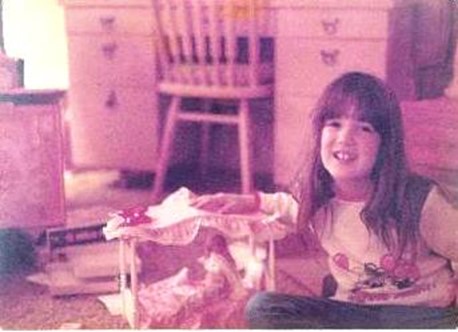
I recall it with precision. I saved every dollar I earned doing chores for my mom and grandma for the entire summer until I reached the magic number of $20. That was enough to purchase the Pink and Pretty Barbie my seven-year-old heart coveted. We went to Mervyn’s (a West coast retailer in the 1980’s akin to what Target would become) and I pricked with pride as I took the hot pink box to the cash register. Tucked inside our family’s turquoise station wagon on the way home, I didn’t take my eyes off Barbie’s blue eyes staring at me from inside the plastic packaging. Once home, I carefully unwound the plastic ties that kept Barbie’s waist, arms, and legs perfectly positioned for display. Barbie bliss had begun.
My sister and I played with Barbies for years. I still remember the day my mom came home from the thrift shop where she volunteered on the Air Force Base in California and had a hand-me-down, knock-off Barbie dream house for us. It was way too big for the small bedroom we shared in military housing, but you couldn’t have told us that. For hours on end we would be flopped on our bellies with our Barbies in hand living in the world we envisioned we would have as grown-ups.
Fast forward to days when I was a budding feminist in college and struggled with the criticism that Barbie was bad for little girls and body image. In my play days, Barbie had always been the strong main character in our make-believe stories. She operated the McDonalds, she lived in the Dream House by herself, she had lots of strong relationships with her girlfriends, and Ken was always an afterthought. In my world, Barbie had been a strong role model for independence.
With the already-a-blockbuster movie hit, Barbie, premiering last weekend, I fondly recall what Barbie meant to me. I jokingly told a friend that my Barbie choice today would be Divorce Barbie. She would wear business suits on the weekdays and jeans and sweatshirts on the weekends. She would be a single mom and run her own household exactly how she pleased. She would make her own successes and be as independent as ever. Ken would still be an afterthought, when and if, he came into the picture.
With Barbie, you could make her into anything you wanted her to be. This appealed to me and my big imagination as a young girl and still does today. My divorce served as one of those life-defining moments when I was able to choose who I was going to be after a major change in my relationships, my housing, and my parenting. I was able to try on different versions of myself and determine who was most authentically me. I looked hard at what a “dream” life would be for me, and I grew into my imagination as I set goals to achieve it. And thanks to Barbie, I always stayed the main character in my own story.
(Pictured: The author with her cherished Pink and Pretty Barbie and the Barbie canopy bed she received for Christmas in 1982.)
